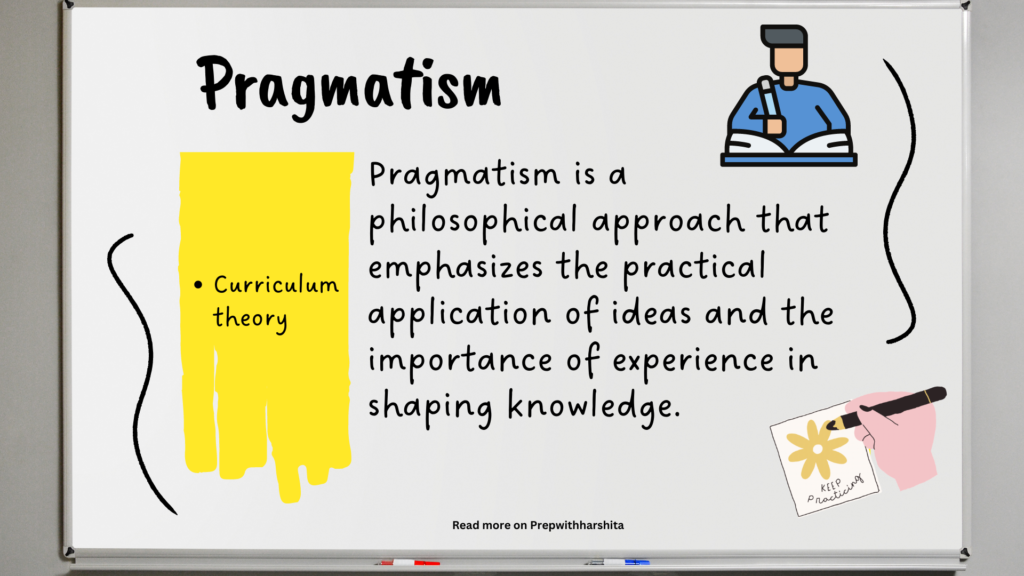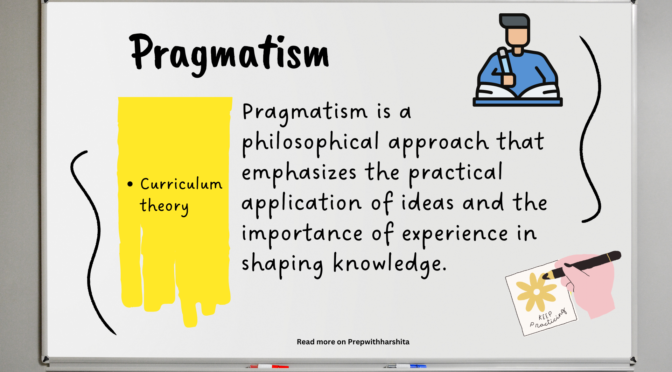Pragmatism is a philosophical approach that emphasizes the practical application of ideas and the importance of experience in shaping knowledge. Some of the key features of pragmatism include:
- Empiricism: Pragmatism emphasizes the importance of experience and observation in gaining knowledge. It views knowledge as something that is constantly evolving and that is shaped by our experiences.
- Instrumentalism: Pragmatism sees ideas and theories as tools or instruments for solving practical problems. Ideas should be judged based on their usefulness in solving real-world problems.
- Focus on the action: Pragmatism values action and experimentation as a way to learn and improve. It emphasizes the importance of taking risks and testing ideas in practice.
- Flexibility: It views knowledge and ideas as flexible and adaptable, and not as fixed or absolute truths. It encourages people to be open to new ideas and to be willing to revise their beliefs based on new evidence.
- Interdisciplinary approach: Pragmatism recognizes the interconnectedness of different fields of study and encourages an interdisciplinary approach to problem-solving. It values the input of multiple perspectives and sees problems as complex and multifaceted.
- Democracy: Pragmatism values democracy and sees it as a way to solve problems through dialogue, negotiation, and compromise. It encourages people to work together to find solutions that work for everyone.
Overall, pragmatism is a philosophy that emphasizes the practical application of ideas and the importance of experience in shaping knowledge. It values flexibility, experimentation, and an interdisciplinary approach to problem-solving, and sees democracy as a key value in society.
Also Visit: Prep with Harshita
Pragmatism views education as a process of problem-solving and emphasizes the importance of experiential learning. This means that students should be actively engaged in the learning process and have opportunities to apply what they have learned in real-world situations. Pragmatism also values interdisciplinary learning, as it recognizes that many problems require multiple perspectives to solve.
In the context of curriculum theory, pragmatism suggests that the curriculum should be designed with a focus on practical skills and knowledge that are relevant to the needs of society. This means that the curriculum should be flexible and adaptable, as the needs of society and the job market are constantly changing. It also values the input of stakeholders, such as employers and community members, in the development of the curriculum.
Overall, this approach emphasizes the practical application of knowledge and skills, the importance of experiential learning, and the need for a flexible and adaptable curriculum that meets the needs of society.



19 thoughts on “Pragmatism”